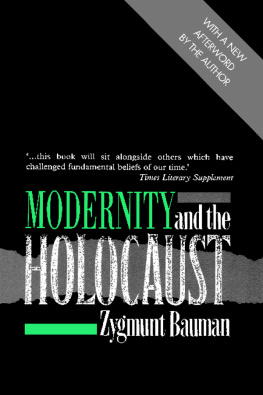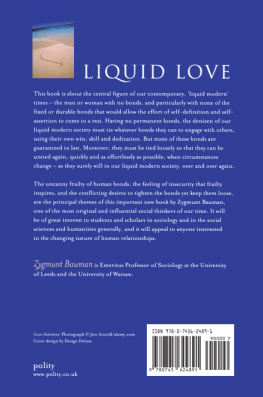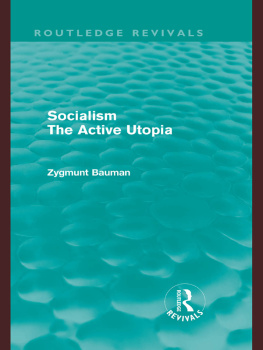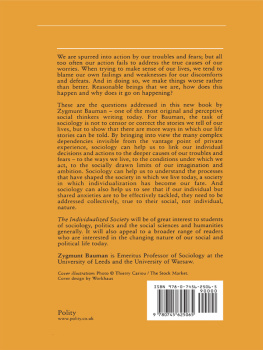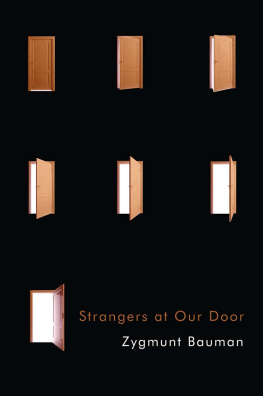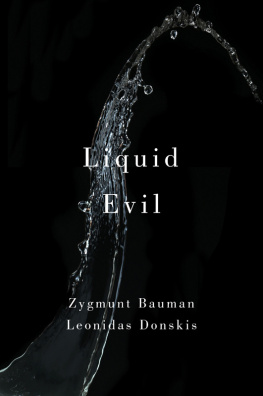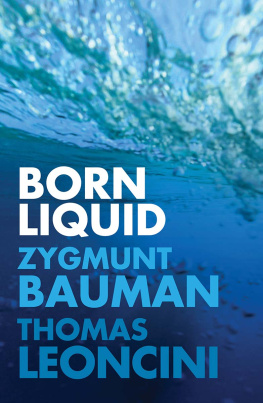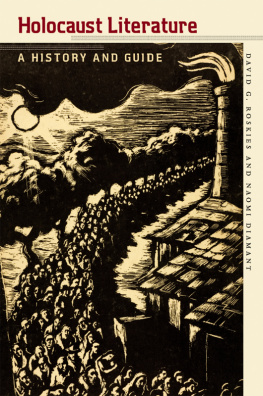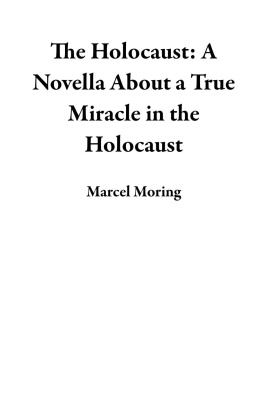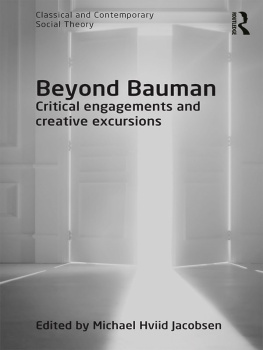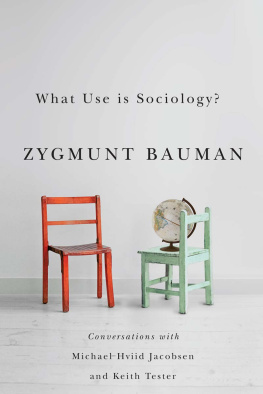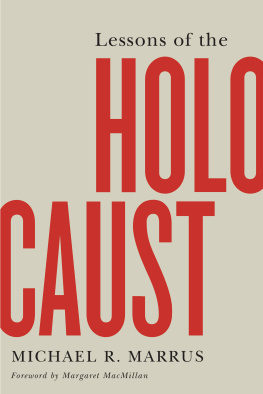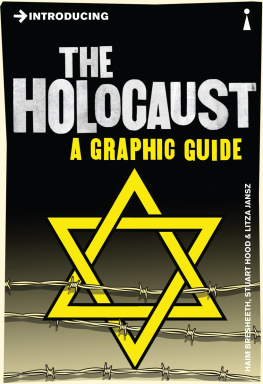Zygmunt Bauman - Modernity and the Holocaust
Here you can read online Zygmunt Bauman - Modernity and the Holocaust full text of the book (entire story) in english for free. Download pdf and epub, get meaning, cover and reviews about this ebook. publisher: Wiley, genre: Religion. Description of the work, (preface) as well as reviews are available. Best literature library LitArk.com created for fans of good reading and offers a wide selection of genres:
Romance novel
Science fiction
Adventure
Detective
Science
History
Home and family
Prose
Art
Politics
Computer
Non-fiction
Religion
Business
Children
Humor
Choose a favorite category and find really read worthwhile books. Enjoy immersion in the world of imagination, feel the emotions of the characters or learn something new for yourself, make an fascinating discovery.
- Book:Modernity and the Holocaust
- Author:
- Publisher:Wiley
- Genre:
- Rating:3 / 5
- Favourites:Add to favourites
- Your mark:
- 60
- 1
- 2
- 3
- 4
- 5
Modernity and the Holocaust: summary, description and annotation
We offer to read an annotation, description, summary or preface (depends on what the author of the book "Modernity and the Holocaust" wrote himself). If you haven't found the necessary information about the book — write in the comments, we will try to find it.
Sociology is concerned with modern society, but has never come to terms with one of the most distinctive and horrific aspects of modernity - the Holocaust.
The book examines what sociology can teach us about the Holocaust, but more particularly concentrates upon the lessons which the Holocaust has for sociology. Baumans work demonstrates that the Holocaust has to be understood as deeply involved with the nature of modernity. There is nothing comparable to this work available in the sociological literature.
Modernity and the Holocaust — read online for free the complete book (whole text) full work
Below is the text of the book, divided by pages. System saving the place of the last page read, allows you to conveniently read the book "Modernity and the Holocaust" online for free, without having to search again every time where you left off. Put a bookmark, and you can go to the page where you finished reading at any time.
Font size:
Interval:
Bookmark:
To Janina, and all the others who survived to tell the truth
As I write, highly civilized human beings are flying overhead, trying to kill me. They do not feel any enmity to me as an individual, nor I against them. They are only doing their duty, as the saying goes. Most of them, I have no doubt, are kind-hearted law-abiding men who would never dream of committing murder in private life. On the other hand, if one of them succeeds in blowing me to pieces with a well-placed bomb, he will never sleep the worse for it. He is serving his country, which has the power to absolve him from evil.
George Orwell, England your England (1941)
Nothing is so sad as silence.
Leo Baeck, President of Reichsvertretung
der deutschen Juden, 193343
It is to our interest that the great historical and social question how could this happen? should retain all its weight, all its stark nakedness, all its horror.
Gershom Scholem, objecting
to the execution of Eichmann
Modernity and the Holocaust
ZYGMUNT BAUMAN
Polity
Copyright Zygmunt Bauman 1989
The right of Zygmunt Bauman to be identified as author of this work has been asserted in accordance with the Copyright, Designs and Patents Act 1988.
First published in 1989 by Polity Press
in association with Blackwell Publishing Ltd.
First published in paperback 1991
Reprinted in 1993, 1995, 1996, 1999
Reprinted with a new afterword 2000
Reprinted 2002, 2003, 2005, 2006, 2007
Polity Press
65 Bridge Street
Cambridge CB2 1UR, UK
Polity Press
350 Main Street
Maldon, MA 02148, USA
All rights reserved. Except for the quotation of short passages for the purposes of criticism and review, no part of this publication may be reproduced, stored in a retrieval system, or transmitted, in any form or by any means, electronic, mechanical, photocopying, recording or otherwise, without the prior permission of the publisher.
Except in the United States of America, this book is sold subject to the condition that it shall not, by way of trade or otherwise, be lent, re-sold, hired out, or otherwise circulated without the publishers prior consent in any form of binding or cover other than that in which it is published and without a similar condition including this condition being imposed on the subsequent purchaser.
ISBN: 978-0-7456-0685-9
ISBN: 978-0-7456-0930-0 (pbk)
ISBN: 978-0-7456-3809-6 (eBook)
A catalogue record for this book is available from the British Library.
Typeset in 11 on 13 pt Garamond by Witwell Ltd, Southport
Printed and bound in Great Britain by Marston Book Services Limited, Oxford
This book is printed on acid-free paper.
For further information on Polity, please visit our website http:www.polity.co.uk
Contents
Social Manipulation of Morality: The European
Amalfi Prize Lecture
The Duty to Remember But What?:
Afterword to the 2000 Edition
Preface
Having written down her personal story of her life in the ghetto and in hiding, Janina thanked me, her husband, for putting up with her protracted absence during the two years of writing, when she dwelled again in that world that was not his. Indeed, I escaped that world of horror and inhumanity when it reached out to the most remote corners of Europe. And like so many of my contemporaries, I never tried to explore it after it vanished from earth, leaving it to linger in the haunted memory and never-healing scars of those whom it bereaved or wounded.
I knew, of course, of the Holocaust. I shared my image of the Holocaust with so many other people of my own and younger generations: a horrible crime, visited by the wicked on the innocent. A world split into mad murderers and helpless victims, with many others helping the victims when they could, but unable to help most of the time. In that world, murderers murdered because they were mad and wicked and obsessed with a mad and wicked idea. Victims went to the slaughter because they were no match to the powerful and heavily armed enemy. The rest of the world could only watch, bewildered and agonized, knowing that only the final victory of the allied armies of the anti-Nazi coalition would bring an end to human suffering. With all this knowledge, my image of the Holocaust was like a picture on the wall: neatly framed, to set the painting apart from the wallpaper and emphasize how different it was from the rest of the furnishings.
Having read Janinas book, I began to think just how much I did not know or rather, did not think about properly. It dawned on me that I did not really understand what had happened in that world which was not mine. What did happen was far too complicated to be explained in that simple and intellectually comforting way I naively imagined sufficient. I realized that the Holocaust was not only sinister and horrifying, but also an event not at all easy to comprehend in habitual, ordinary terms. This event had been written down in its own code which had to be broken first to make understanding possible.
I wanted historians and social scientists and psychologists to make sense of it and explain it to me. I explored library shelves that I had never inspected before, and I found these shelves tightly packed, overflowing with meticulous historical studies and profound theological tracts. There were a few sociological studies as well skilfully researched and poignantly written. The evidence amassed by the historians was overwhelming in volume and content. Their analyses were cogent and profound. They showed beyond reasonable doubt that the Holocaust was a window, rather than a picture on the wall. Looking through that window, one can catch a rare glimpse of many things otherwise invisible. And the things one can see are of the utmost importance not just for the perpetrators, victims and witnesses of the crime, but for all those who are alive today and hope to be alive tomorrow. What I saw through this window I did not find at all pleasing. The more depressing the view, however, the more I was convinced that if one refused to look through the window, it would be at ones peril.
And yet I had not looked through that window before, and in not looking I did not differ from my fellow sociologists. Like most of my colleagues, I assumed that the Holocaust was, at best, something to be illuminated by us social scientists, but certainly not something that can illuminate the objects of our current concerns. I believed (by default rather than by deliberation) that the Holocaust was an interruption in the normal flow of history, a cancerous growth on the body of civilized society, a momentary madness among sanity. Thus I could paint for the use of my students a picture of normal, healthy, sane society, leaving the story of the Holocaust to the professional pathologists.
My complacency, and that of my fellow sociologists, was greatly helped (though not excused) by certain ways in which the memory of the Holocaust had been appropriated and deployed. It had been all-too-often sedimented in the public mind as a tragedy that occurred to the Jews and the Jews alone, and hence, as far as all the others were concerned, called for regret, commiseration, perhaps apology, but not much more than that. Time and again it had been narrated by Jews and non-Jews alike as a collective (and sole) property of the Jews, as something to be left to, or jealously guarded by, those who escaped the shooting and the gassing, and by the descendants of the shot and the gassed. In the end both views the outside and the inside complemented each other. Some self-appointed spokesmen for the dead went as far as warning against thieves who collude to steal the Holocaust from the Jews, christianize it, or just dissolve its uniquely Jewish character in the misery of an indistinct humanity. The Jewish state tried to employ the tragic memories as the certificate of its political legitimacy, a safe-conduct pass for its past and future policies, and above all as the advance payment for the injustices it might itself commit. Each for reasons of its own, such views contributed to the entrenchment of the Holocaust in public consciousness as an exclusively Jewish affair, of little significance to anyone else (including the Jews themselves as human beings) obliged to live in modern times and be members of modern society. Just how much and how perilously the significance of the Holocaust had been reduced to that of a private trauma and grievance of one nation was brought to me recently in a flash, by a learned and thoughtful friend of mine. I complained to him that I had not found in sociology much evidence of universally important conclusions drawn from the Holocaust experience. Is it not amazing, my friend replied, considering how many Jewish sociologists there are?
Next pageFont size:
Interval:
Bookmark:
Similar books «Modernity and the Holocaust»
Look at similar books to Modernity and the Holocaust. We have selected literature similar in name and meaning in the hope of providing readers with more options to find new, interesting, not yet read works.
Discussion, reviews of the book Modernity and the Holocaust and just readers' own opinions. Leave your comments, write what you think about the work, its meaning or the main characters. Specify what exactly you liked and what you didn't like, and why you think so.

